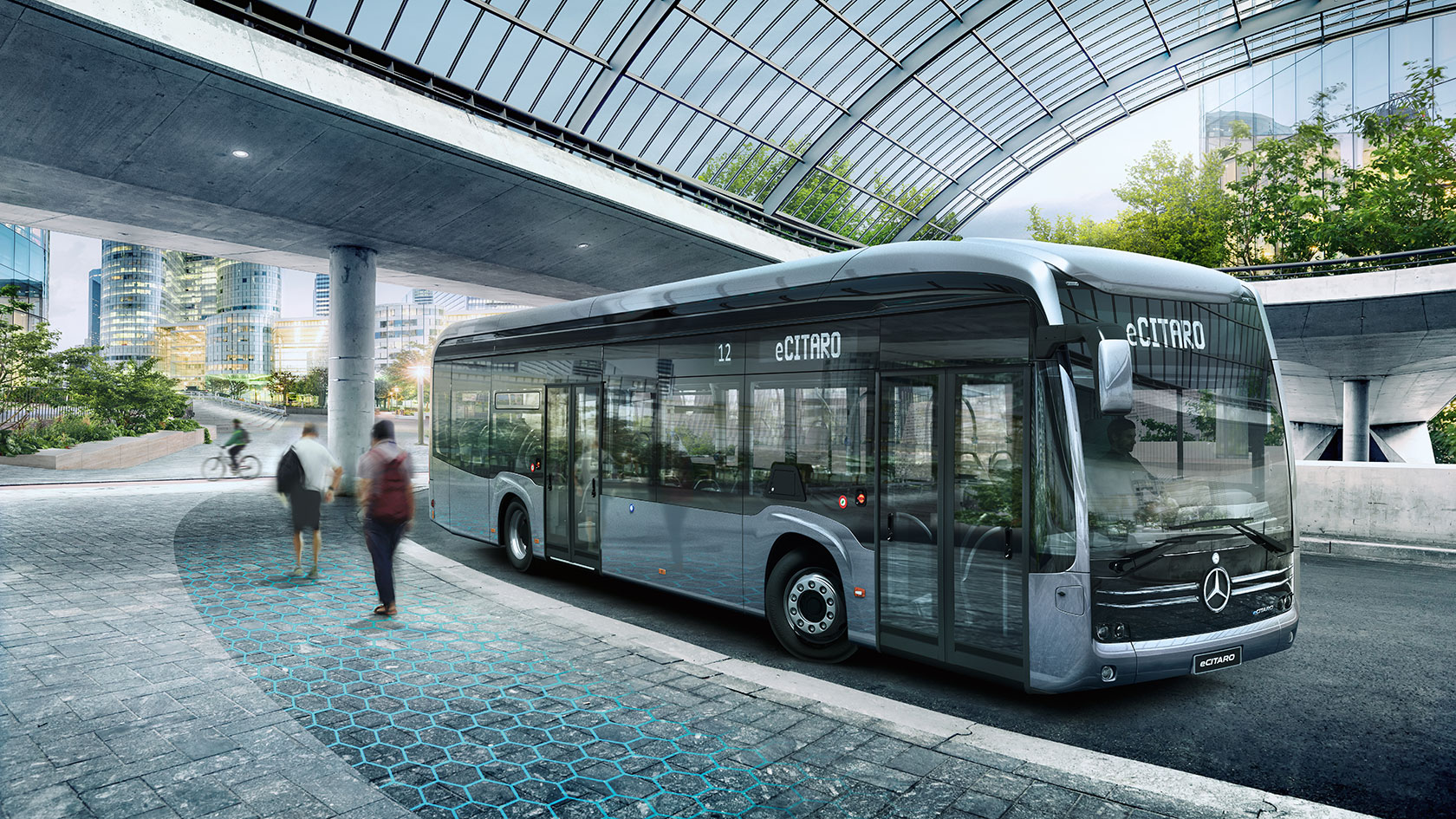The eCitaro not only expands the portfolio of the world's best-selling Citaro with an all-electric city bus ready for series production; the eCitaro also raises e‑mobility to a completely new level.
Its intelligent interaction between innovative battery and charging technology, networking of IT and communication systems, and not least its striking futuristic design make it the new standard for electric city buses, ready today for the city of tomorrow.





